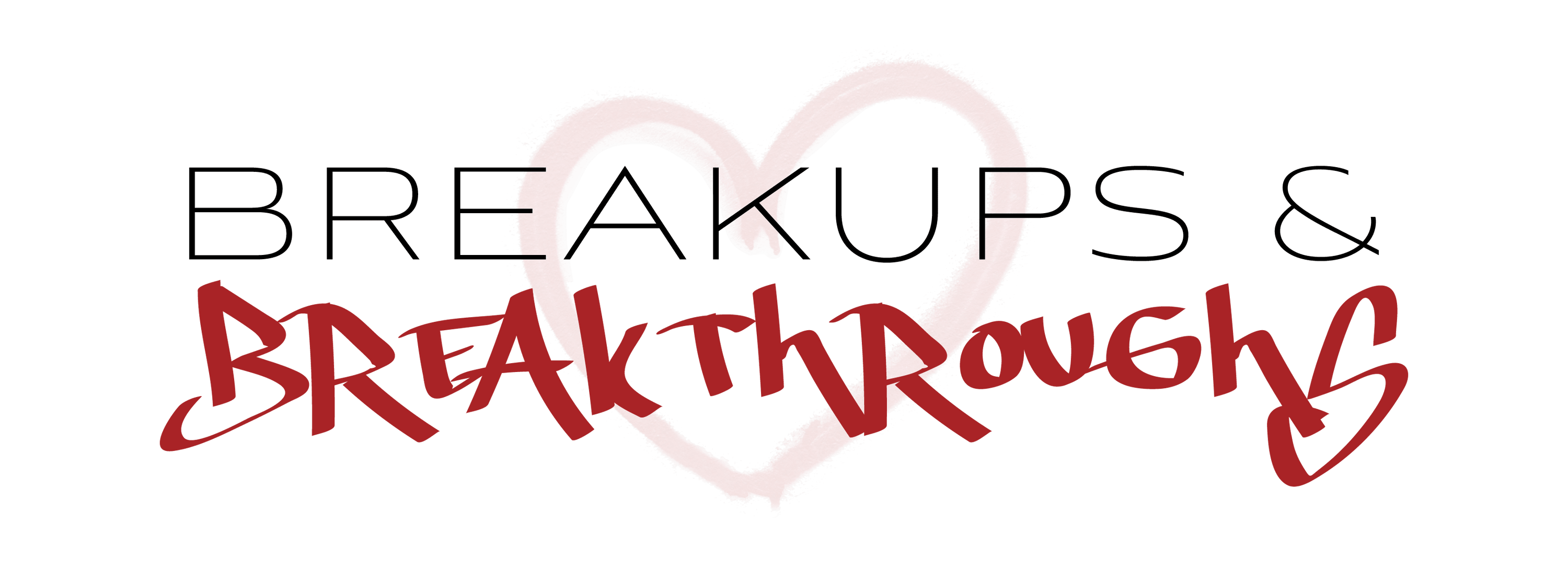Breakups can feel like the end of the world, but trust me, they’re just a chapter, not the whole book. We’ve all been there—sitting in our pajamas, scrolling through old photos, and wondering where it all went wrong. But here’s the thing: breakups, as painful as they are, can also be powerful opportunities for growth.
Let’s get real for a second. Breakups are one of those life moments that nobody really prepares you for. You can read all the self-help books in the world, but until you’ve experienced it yourself, you don’t truly understand the emotional rollercoaster that comes with it. Whether it’s a sudden breakup or a slow fade-out, the pain hits hard.
But guess what? You’re not alone. Millions of people go through breakups every single day, and they come out stronger on the other side. In this article, we’re going to dive deep into everything you need to know about breakups, from understanding why they happen to figuring out how to heal and move forward. So grab your favorite drink, get comfy, and let’s talk about it.
Why Do Breakups Happen? Understanding the Breakup Blues
Alright, let’s break it down. Breakups don’t just happen out of nowhere. There’s usually a reason behind them, even if it’s not always obvious at first. Sometimes it’s communication issues, sometimes it’s growing apart, and sometimes it’s just bad timing. But no matter the reason, it’s important to understand why it happened so you can learn from it.
Common Reasons for Breakups
Here’s a quick rundown of some of the most common reasons why relationships end:
- Lack of Communication: When partners stop talking openly about their feelings and needs, problems are bound to arise.
- Incompatibility: Sometimes, people just grow in different directions, and that’s okay.
- Trust Issues: Cheating or betrayal can be a major dealbreaker in any relationship.
- Unmet Expectations: If one partner’s needs aren’t being met, it can lead to dissatisfaction and ultimately, a breakup.
Remember, breakups aren’t always someone’s fault. Sometimes, they’re just a natural part of life.
Dealing with the Pain: How to Survive the Emotional Fallout
So, you’ve just gone through a breakup. Now what? The first few days (or weeks) can feel like a blur of emotions—sadness, anger, confusion, and maybe even relief. It’s all normal, but you need to find healthy ways to cope with those feelings.
Self-Care During a Breakup
Here are some tips for taking care of yourself during this tough time:
- Give Yourself Permission to Grieve: It’s okay to feel sad or cry—it’s all part of the healing process.
- Stay Connected with Friends and Family: Lean on your support system to help you through the tough times.
- Get Moving: Exercise is a great way to release endorphins and boost your mood.
- Avoid Bingeing on Alcohol or Junk Food: While it might feel good in the moment, it won’t do you any favors in the long run.
It’s important to be kind to yourself during this time. You’re allowed to take things slow and focus on healing.
Learning from the Experience: What Did You Gain?
Believe it or not, there are actually some positives to be found in breakups. Sure, it hurts in the moment, but looking back, you might realize that you learned some valuable lessons about yourself and what you want in a relationship.
Key Lessons from Breakups
Here are a few things you might discover after a breakup:
- Self-Awareness: You’ll gain a better understanding of your own needs and boundaries.
- Strength: You’ll realize just how resilient you are and that you can get through anything.
- Clarity: You’ll have a clearer picture of what you want in your next relationship.
Breakups can be tough, but they can also be transformative. Use this time to reflect and grow.
Rebuilding After a Breakup: Steps to Moving Forward
Once the initial shock of a breakup wears off, it’s time to start thinking about how to move forward. This doesn’t mean you have to forget what happened—it just means you’re ready to start focusing on yourself and your future.
Creating a New Normal
Here’s how you can start rebuilding your life after a breakup:
- Set New Goals: Whether it’s personal, professional, or relationship-related, setting new goals can give you something to focus on.
- Explore New Hobbies: Try something you’ve always wanted to do but never had the time for.
- Focus on Personal Growth: Invest in yourself—take a class, read a book, or start a new project.
Remember, healing takes time. Be patient with yourself and trust the process.
When to Seek Help: Recognizing the Signs of Depression
While it’s normal to feel sad after a breakup, sometimes those feelings can escalate into something more serious. If you’re struggling to cope, it might be time to seek professional help.
Signs You Might Need Support
Here are a few signs that it’s time to talk to someone:
- Feeling Overwhelmed: If you’re struggling to manage your emotions on your own.
- Loss of Interest in Activities: If you no longer enjoy things you used to love.
- Changes in Sleep or Appetite: If you’re sleeping too much or too little, or if your eating habits have changed drastically.
Therapy or counseling can be incredibly helpful during this time. Don’t hesitate to reach out for support if you need it.
Breaking Up with Social Media: Managing Your Online Life
Social media can be a double-edged sword during a breakup. On one hand, it’s a great way to stay connected with friends and family. On the other hand, it can also be a source of pain if you’re constantly seeing updates from your ex or mutual friends.
Tips for Managing Social Media After a Breakup
Here’s how you can navigate social media during this time:
- Unfollow or Mute Your Ex: It’s okay to take a break from their updates while you heal.
- Limit Your Time Online: Try to spend less time scrolling and more time focusing on yourself.
- Share Your Story Wisely: Be careful about what you post online—remember, once it’s out there, it’s permanent.
Social media can be a great tool, but it’s important to use it in a way that supports your healing process.
Healing Through Connection: Building a Support System
One of the best things you can do after a breakup is lean on your support system. Whether it’s friends, family, or even a support group, having people to talk to can make a huge difference.
Building a Strong Support Network
Here’s how you can strengthen your connections:
- Be Honest About Your Feelings: Don’t be afraid to share how you’re really feeling with the people you trust.
- Plan Fun Activities: Spend time doing things you enjoy with the people who matter most to you.
- Join a Group or Club: Meeting new people can be a great way to expand your support network.
Having a strong support system can help you heal faster and feel less alone during this time.
When Love Returns: Dating After a Breakup
Eventually, you might start thinking about dating again. But how do you know when you’re ready? And how do you approach dating after a breakup without bringing baggage from the past?
Signs You’re Ready to Date Again
Here are a few signs that you might be ready to dip your toes back into the dating pool:
- You’ve Processed Your Emotions: You’ve worked through your feelings about the breakup and feel ready to move on.
- You Have Clear Boundaries: You know what you want and don’t want in a relationship.
- You’re Excited About the Possibilities: You’re genuinely excited about the idea of meeting someone new.
When you do start dating again, take it slow and be open to new experiences. You never know where it might lead!
Conclusion: Embracing the Journey
Breakups are hard, but they’re also an opportunity for growth and self-discovery. By understanding why they happen, learning from the experience, and focusing on healing, you can come out stronger on the other side. Remember, it’s okay to take things slow and focus on yourself during this time.
So, what’s next? Whether it’s reaching out to a friend, starting a new hobby, or simply taking a deep breath and focusing on the present moment, there are plenty of ways to move forward. And who knows? Maybe one day, you’ll look back on this breakup and realize it was just the beginning of something even better.
Now it’s your turn. Share your thoughts in the comments below, or check out some of our other articles for more tips and advice. You’ve got this!
Table of Contents
- Why Do Breakups Happen? Understanding the Breakup Blues
- Dealing with the Pain: How to Survive the Emotional Fallout
- Learning from the Experience: What Did You Gain?
- Rebuilding After a Breakup: Steps to Moving Forward
- When to Seek Help: Recognizing the Signs of Depression
- Breaking Up with Social Media: Managing Your Online Life
- Healing Through Connection: Building a Support System
- When Love Returns: Dating After a Breakup
- Conclusion: Embracing the Journey


